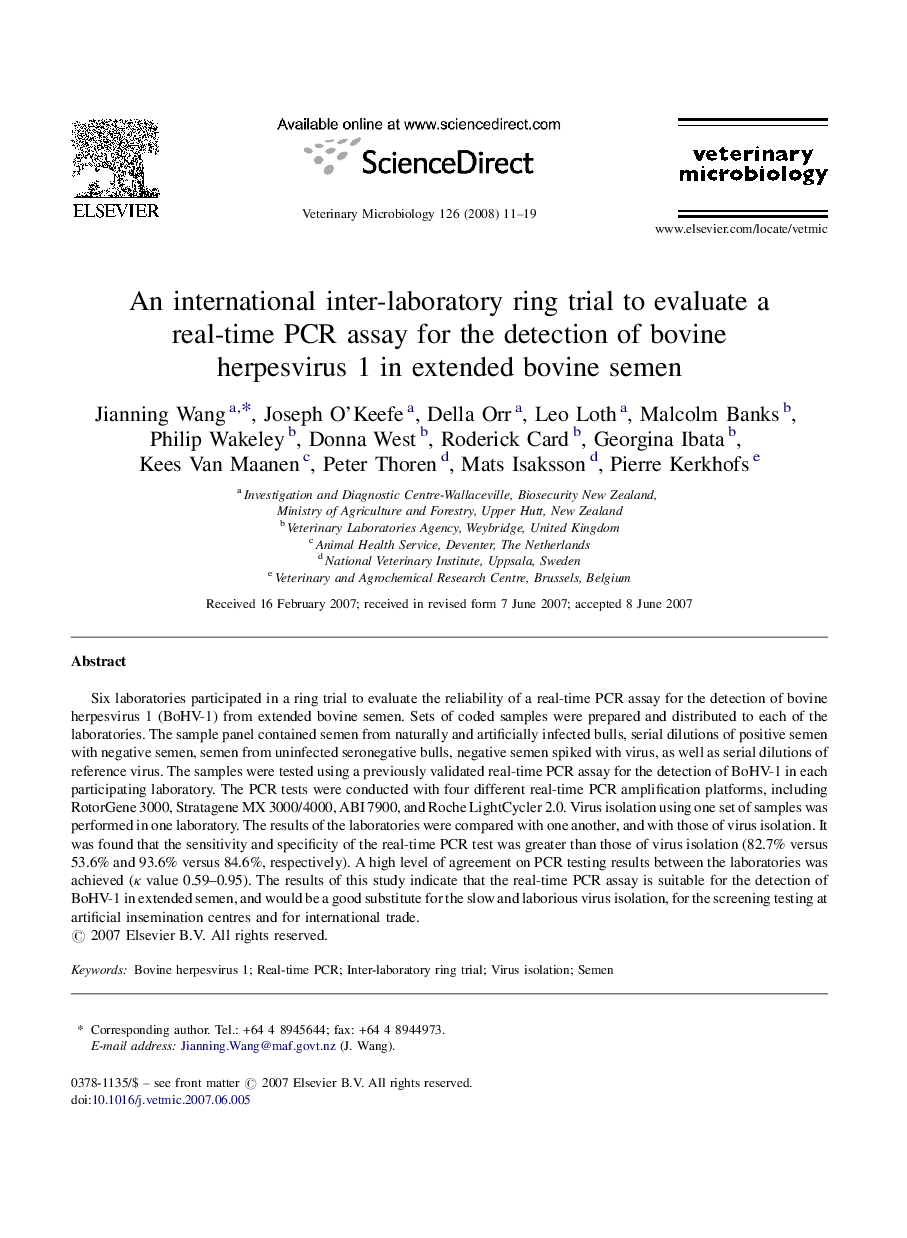| Article ID | Journal | Published Year | Pages | File Type |
|---|---|---|---|---|
| 2469016 | Veterinary Microbiology | 2008 | 9 Pages |
Six laboratories participated in a ring trial to evaluate the reliability of a real-time PCR assay for the detection of bovine herpesvirus 1 (BoHV-1) from extended bovine semen. Sets of coded samples were prepared and distributed to each of the laboratories. The sample panel contained semen from naturally and artificially infected bulls, serial dilutions of positive semen with negative semen, semen from uninfected seronegative bulls, negative semen spiked with virus, as well as serial dilutions of reference virus. The samples were tested using a previously validated real-time PCR assay for the detection of BoHV-1 in each participating laboratory. The PCR tests were conducted with four different real-time PCR amplification platforms, including RotorGene 3000, Stratagene MX 3000/4000, ABI 7900, and Roche LightCycler 2.0. Virus isolation using one set of samples was performed in one laboratory. The results of the laboratories were compared with one another, and with those of virus isolation. It was found that the sensitivity and specificity of the real-time PCR test was greater than those of virus isolation (82.7% versus 53.6% and 93.6% versus 84.6%, respectively). A high level of agreement on PCR testing results between the laboratories was achieved (κ value 0.59–0.95). The results of this study indicate that the real-time PCR assay is suitable for the detection of BoHV-1 in extended semen, and would be a good substitute for the slow and laborious virus isolation, for the screening testing at artificial insemination centres and for international trade.
